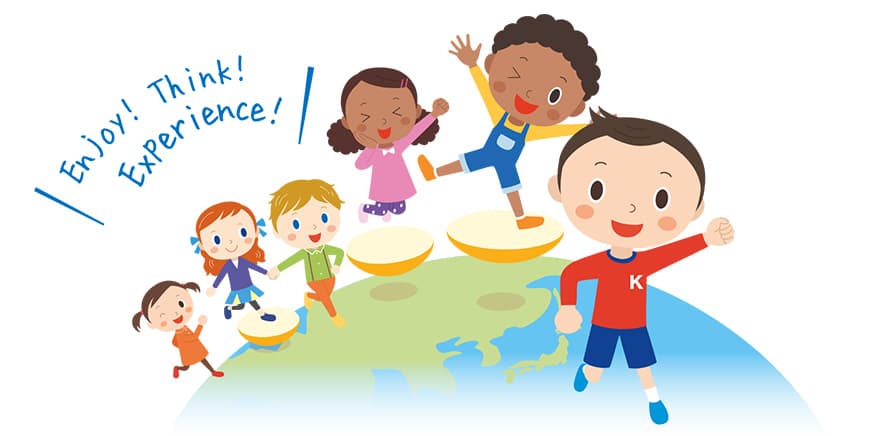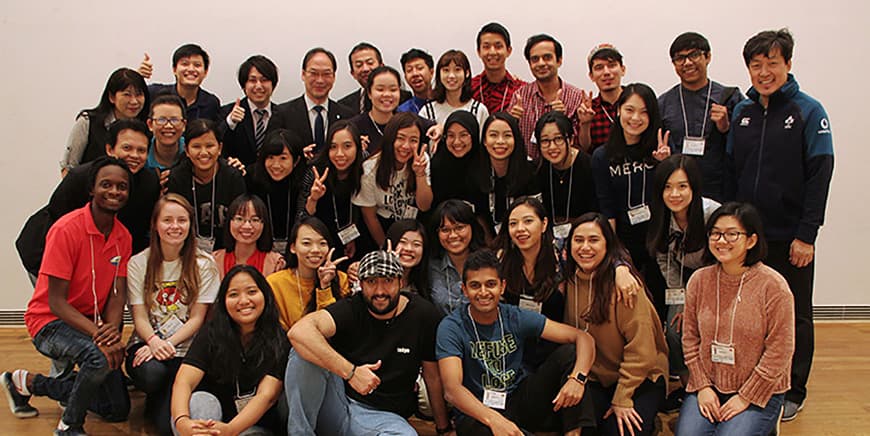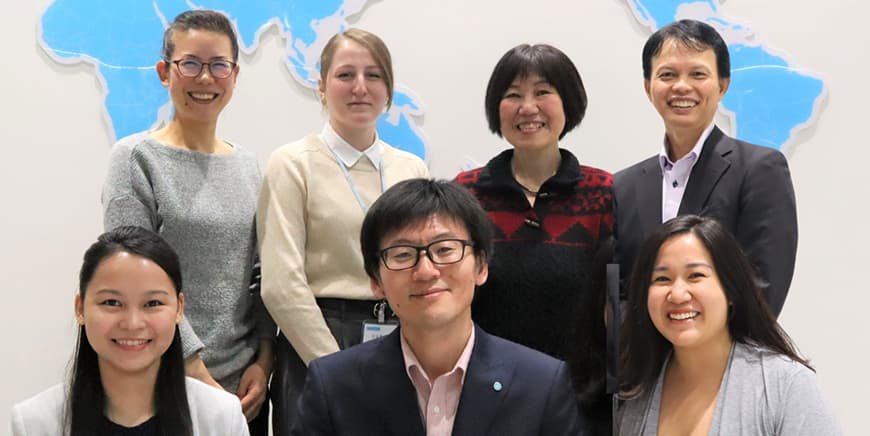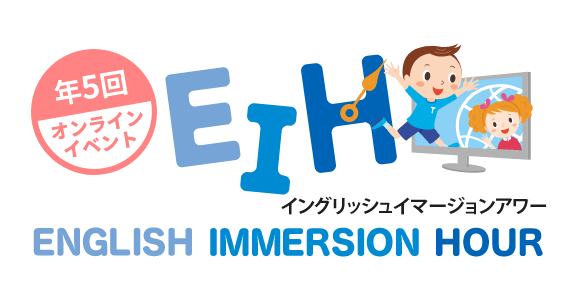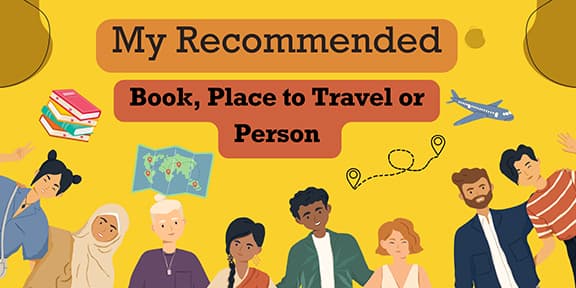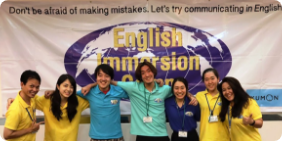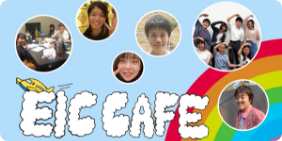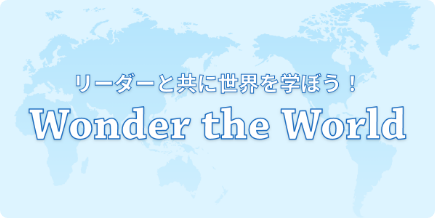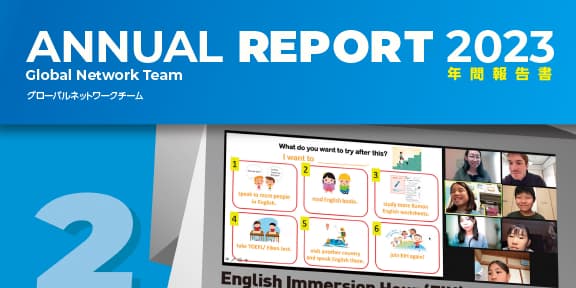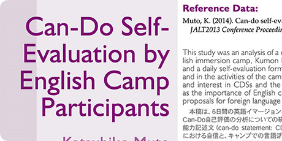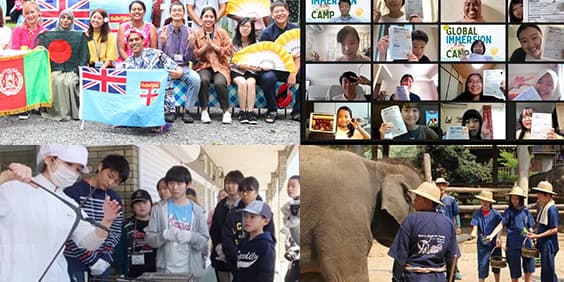Voices of GIC Visitors & Kumon Instructors
Voices of Kumon Instructors
Nurturing individuals who like English from a young age and develop a mastery over English
Tatsuko Nakata (Kumon Instructor, Kumon Convention Area Center)
My Kumon Center was opened when my eldest daughter was one-year-old. As I also experienced working as a Japan Airlines cabin attendant, I have been thinking about what is necessary for the acquisition of “Practical English” since the early stage of managing my Center.
I think that it is important to repeatedly take in a large amount of input (preferably practical English) from an early age. But, as for building an English foundation, the Kumon Method is the best in terms of enabling the balanced acquisition of listening, speaking, reading and writing skills.
Being able to “converse with someone in English” is indeed important. But instead of just stopping at the usual daily conversational level, we should also consider whether they are able to hold a conversation about deeper contents such as politics and the economy. I think the aim of Kumon is to nurture students who can reach that level when it comes to English education. So, for students from a young age, they are usually encouraged to keep studying to gain the skills necessary for passing external tests but that should not the study goal. What’s more important is that taking on that kind of challenge should lead to students’ motivation and seeing that will also change the awareness of the adults supporting them. For that, the parents will also believe their children can communicate in English on political and economic topics one day. Parents will thus support their learning more than before.
Now my daughter is also working as a Kumon instructor, but when she was still a graduate student, I often accompanied her to academic conferences and talked to well-known scholars there about English learning. Hence, I have heard about the relation between “input” and “output” many times from such experiences and believe that theory is consistent with Kumon’s belief. EIC/EID offer a great place for the students to feel more encouraged towards their future learning by actually using the “input” they gain from their learning at Kumon.
I learned from my own experience, from my children, and from many Kumon students that being able to speak English can change your life. I hope that through Kumon English learning, the students can, from a young age, get used to English, become fond of English, and learn this language with a mindset they will actually use it and grow into global citizens with a high English proficiency.
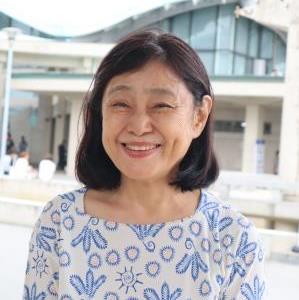
The synergy of daily learning and immersion activities that open the door to the world
Komi Ofuna (Kumon Instructor, Kumon Okamoto Center)
“For many children, English Immersion Camp (EIC) and English Immersion Day (EID) have become the motive for their afterwards activities.” … For example, a student who participated in EIC in 2008 had to give up on studying abroad due to family issue but now he is enrolled in a Japanese university where he can fulfill his goals and travel around the world on many international projects. In addition, there was also a student who took on the challenge not only of the English environment but also of studying abroad in Sweden.
Regarding daily learning, there was a student who said, ‘The reason why I didn’t quit Kumon was because I always felt interested in the contents of Kumon worksheets.’ Inspired by the world she read about in the worksheets, she is now studying at an American university. In Kumon worksheets, there are many contents about science and society, so I would like the students to broaden their worldview through them. Grammar is the foundation for a better understanding of the language, but it is a waste to learn English just for gaining grammar skills.
‘Because you learn English, so I want you to look out to the world.’… When I talked to the children who participated in EID and EIC, many of them said that they were nervous at first, but it was very interesting in the end. For an elementary school student, suddenly going study abroad will be quite difficult, so I would like to introduce opportunities such as EIC and EID for them as a first step to take a look out at the world. In addition, children can understand to some extent topics such as environmental issues ad poverty issues which are included in the EIC program, and I think they will be interested. I have heard that among the EIC participants from all around Japan, there is one who is now working as an interpreter guide in Hiroshima and one who is now building wells in Sri Lanka. I think that is so amazing. Like the environment provided by EID/EIC, English often becomes the common language for communicating with people in the multi-lingual world, and it is a powerful tool for communication even when your English skills is not so good.
With the synergy between what they read in their daily learning in Kumon and the experiences they gain from immersion activities, I hope that the children can develop solid English skills, obtain a mindset to broaden their worldview, and in the future contribute to global society.”
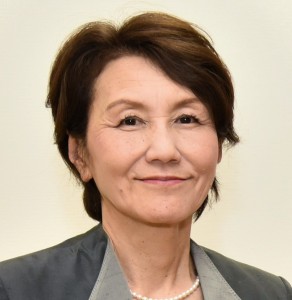
Voices of EIC Visitors
Mariko Shimizu (Part-time Lecturer at Gifu Women’s University, Representative of Educies Co., Ltd.)
“I have been visiting EIC since 2008 and observing the participants spending time with English every year from various perspectives. In this year’s EIC, there was a scene I have never seen before, and I was deeply moved by watching it. That was when I saw “the children think by themselves and express what they want to say to others.” It was a quite difficult activity to do in English, but the children were enjoying it with their eyes shining.
In this activity, I became a guest and visited a travel agency to consult about where I should travel to. I used English sentences like “I want to see famous places” and “I want to visit temples.” Then, the children in the travel agency booth replied saying, “You should visit Kyoto. Kyoto has many temples. They are very famous.”

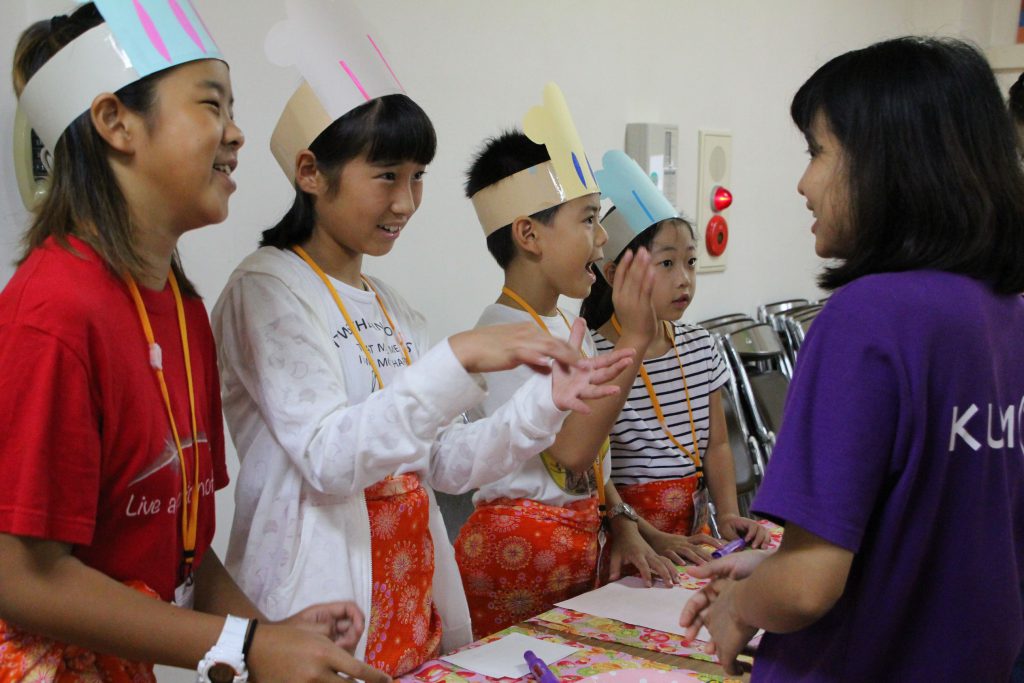
It was an activity in which children think about the feelings of others, gather the information they knew, and made a proposal that could best satisfy others’ wishes. I was surprised that they was able to convey their true feelings in English, rather than following a fixed English script.
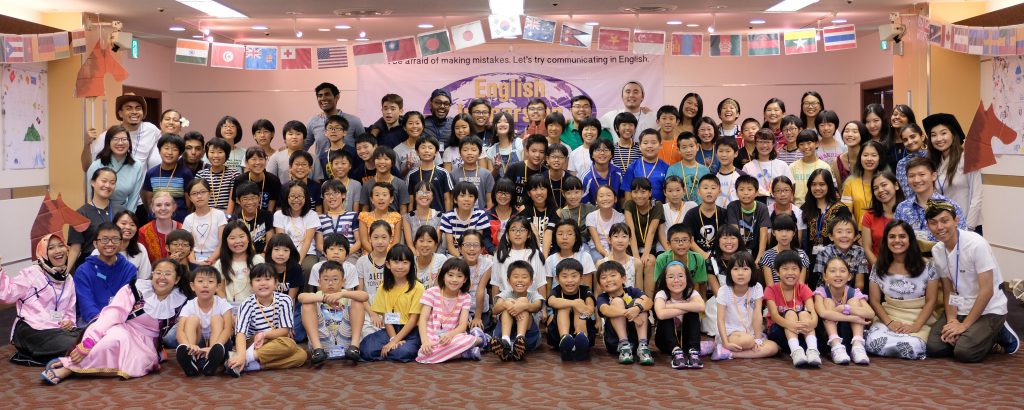
The activities for children in EIC are created by Staff and Leaders, who are non-native English speaking foreign students. With different values and perspectives, every year they customize the contents little by little while nurturing the children’s intellectual curiosity, ability to relentlessly explore things, the ability to live in the world, and the ability to express their feelings with English.
Now that English education at elementary schools is paid much attention to, the basic English skills and communication skills of the participating children are also improved greatly compared to before. Future EIC will have to consider further development of contents in response to the children’s intellectual needs. I am really looking forward to seeing what the next visit will be like.”
2018.11


